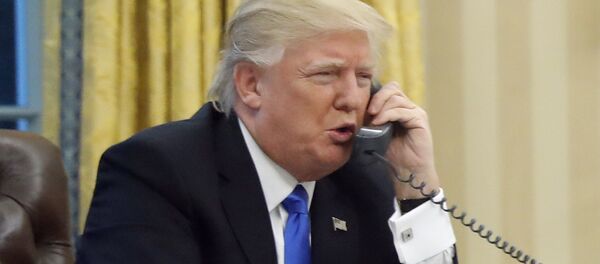Sputnik: What is and what is not new in Mohammed bin Salman's statement?
James Gelvin: There is little, if anything, that is new in Mohammad bin Salman's interview. In 2002, Saudi Arabia presented its "Arab Peace Initiative." The initiative calls for a two state solution, the withdrawal of Israel to its 1967 borders, a Palestinian state with East Jerusalem as its capital, and peace treaties between Israel and all belligerent Arab states. It was rumored late last year that King Salman of Saudi Arabia changed the Saudi position. Muhammad bin Salman's interview indicates that the Saudis have not officially changed it at all. Be that as it may, the Saudis will be perfectly willing to sell out the Palestinian cause in pursuit of an informal alliance with Israel against Iran.
READ MORE: Israel Has Right to Land, Iran's Khamenei Makes Hitler Look Good — Saudi Prince
Sputnik: What goals, in your opinion, does Saudi Arabia might be pursuing in such cooperation?
James Gelvin: For Saudi Arabia, the most important foreign policy issue is its proxy war with Iran. Everything else pales in comparison. For the Saudis, the threat from Iran is existential; the Palestinian issue is not. Saudi Arabia is willing to abandon the flimsy support it has given to the Palestinian cause in order to pursue rapprochement with Israel. An alliance with Israel — formal or informal — gives Saudi Arabia strategic depth against both Iran and those the Saudis view as Iranian proxies in the region — Hezbollah and the Syrian regime, for example. For Israel, the pay off is clear: normalization with Arab states with no compromise on the issue of the Palestinian territories.
Sputnik: In his interview with the Wall Street Journal the Saudi Prince has expressed opinion that a war with Iran is possible within 10-15 years time-frame. Do you believe it might be true or does the Prince exaggerate the threat?
James Gelvin: The crown prince probably has two audiences in mind when he states that war with Iran is inevitable. First, the members of the "Middle East Strategic Alliance" — those states that have committed themselves to the Saudi side in its proxy war against Iran. Saudi Arabia uses the threat of war to strengthen the alliance. Second, the Trump administration, which has put the United States on the side of the alliance. Barack Obama once said that the Saudis would have to learn to "share the neighborhood" with Iran, a statement which horrified the Saudis.
Sputnik: Saudi Arabia has entered Yemen conflict under pretext of bringing peace and stability to the country. We see none of those 3 years later. Do you think they will succeed or this conflict will join other frozen ones in the world?
James Gelvin: Just as the United States got bogged down in Vietnam and Afghanistan, the Saudis will find it impossible to succeed in Yemen and difficult to extricate themselves from the conflict there.
The views and opinions expressed by James Gelvin are those of the speaker and do not necessarily reflect those of Sputnik.




